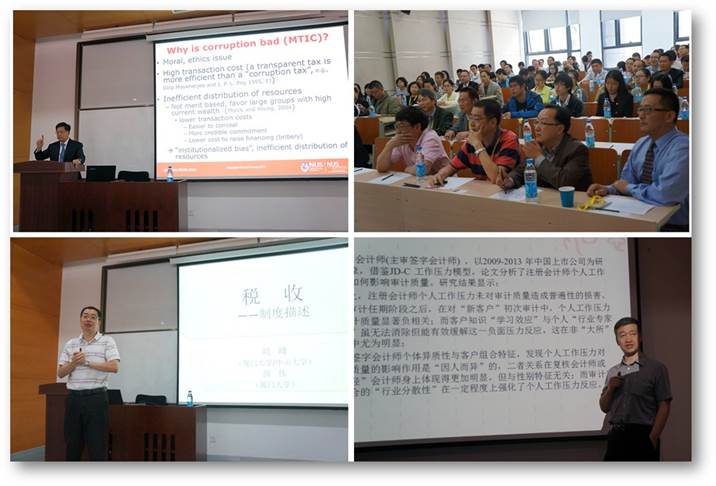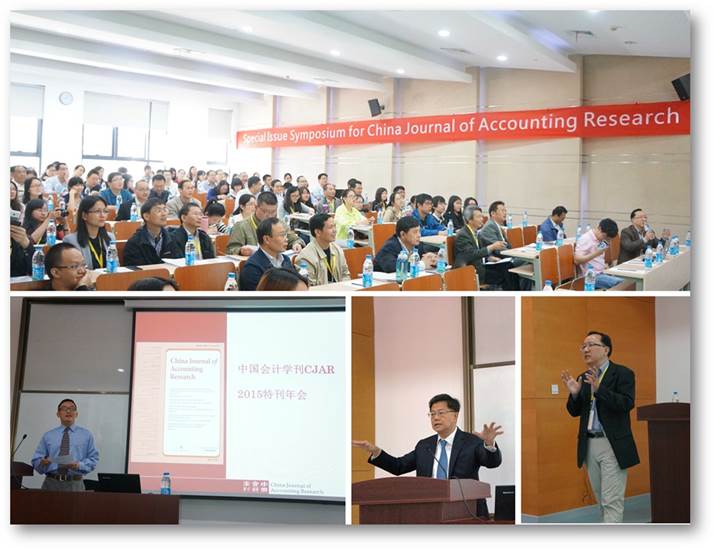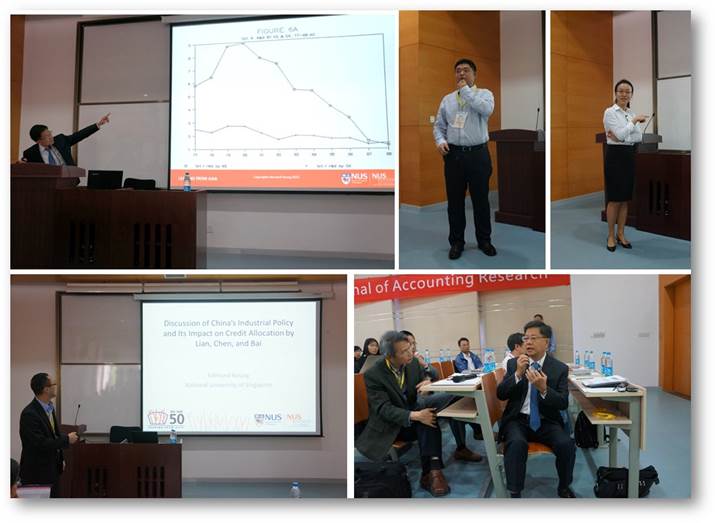Report on the China Journal of Accounting Research Special Issue Symposium 2015
Suzhou, China
25 – 26 April, 2015
An exploration to promote authentic China research - about the recent CJAR Symposium at NUSRI Suzhou, China
The Special Issue Symposium for the China Journal of Accounting Research (CJAR), jointly organized by Sun Yat-Sen University, NUS Business School China Business Centre, and Nanjing University, was successfully held on 25 – 26 April 2015, at the NUS Research Institute in Suzhou, China. Co-funded by Sun Yat-sen University and the City University of Hong King, and published by Elsevier.

CJAR is China’s first double-blind refereed journal of accounting in the English language, with a distinct focus on publishing theoretical and empirical research papers that employ contemporary research methodologies to investigate issues about accounting, finance, auditing and corporate governance in China, the Greater China region and other emerging markets.

Featuring the theme “Rediscovering Accounting Research in China”, this year’s special symposium brought together over a hundred participants from China and Singapore in the pioneering exploration to promote authentic China research that is consistent with the reality of China’s economic development and its rising global stature.

In his opening remark, Professor Oliver Li, the symposium’s co-editor and director of China Business Centre in NUS Business School, reviewed the development of CJAR in the past eight years. He statistically reviewed CJAR’s performance over the past few years in terms of the number of submissions, rejection rate, the number of downloads by countries, the number of submissions by regions, etc. Looking forward, he views CJAR's growth as consistent with China’s upward economic trajectory and is confident that CJAR will grow in significance and influence among a wider community of researchers all over the world.
Professor Bernard Yeung, Dean and Stephen Riady Distinguished Professor of NUS Business School delivered the keynote speech "Corruption”. Prof Yeung started from a brief overview of Asia’s macroeconomic and political movement and then zoomed onto the issue of corruption. He viewed the success of anti-corruption effort as helping India and Indonesia reap huge population dividend while assisting China in materializing substantial rooms for growth. From economic perspective, effective anti-corruption reduces high transaction cost, improves resources distribution efficiency, and encourages human capital development for innovation. He believes that corruption is an exciting research area and encourages researchers to contribute to this literature and help shape this important human development in Asia.
Professor Chen Donghua, a Chang Jiang Scholar from Nanjing University, presented “Industrial policies and firm behaviours: theoretical framework and China experiences”. Prof Chen introduced a new research area investigating the interactions between industrial policies and micro-level firm behaviours. Based on thorough reviews of the western economic theories, the history of industrial policies and China’s experience as a government-dominated nation, Prof Chen developed a research framework using empirical tools to examine the influence of macro-level policies on firm behaviours. He sees China’s unique development experiences as equally important compared with western experiences.
Prof Liu Feng of Xiamen University presented “Tax under China's unique institutional settings”. He presented examples and evidence that the institutions and mechanisms of China's taxation system are very different from those of the western economies. Therefore, researchers should make adjustments and develop their own theories out of native experience instead of following the western literature.
The 2015 special symposium received over 50 submissions, out of which 11 were selected for presentation. Topics covered industrial policies, corruption, senior executive compensation, political connection, the effect of accountants’ work stress on audit quality, selective regulatory execution, China’s taxation policy, CEO promotion, etc.




